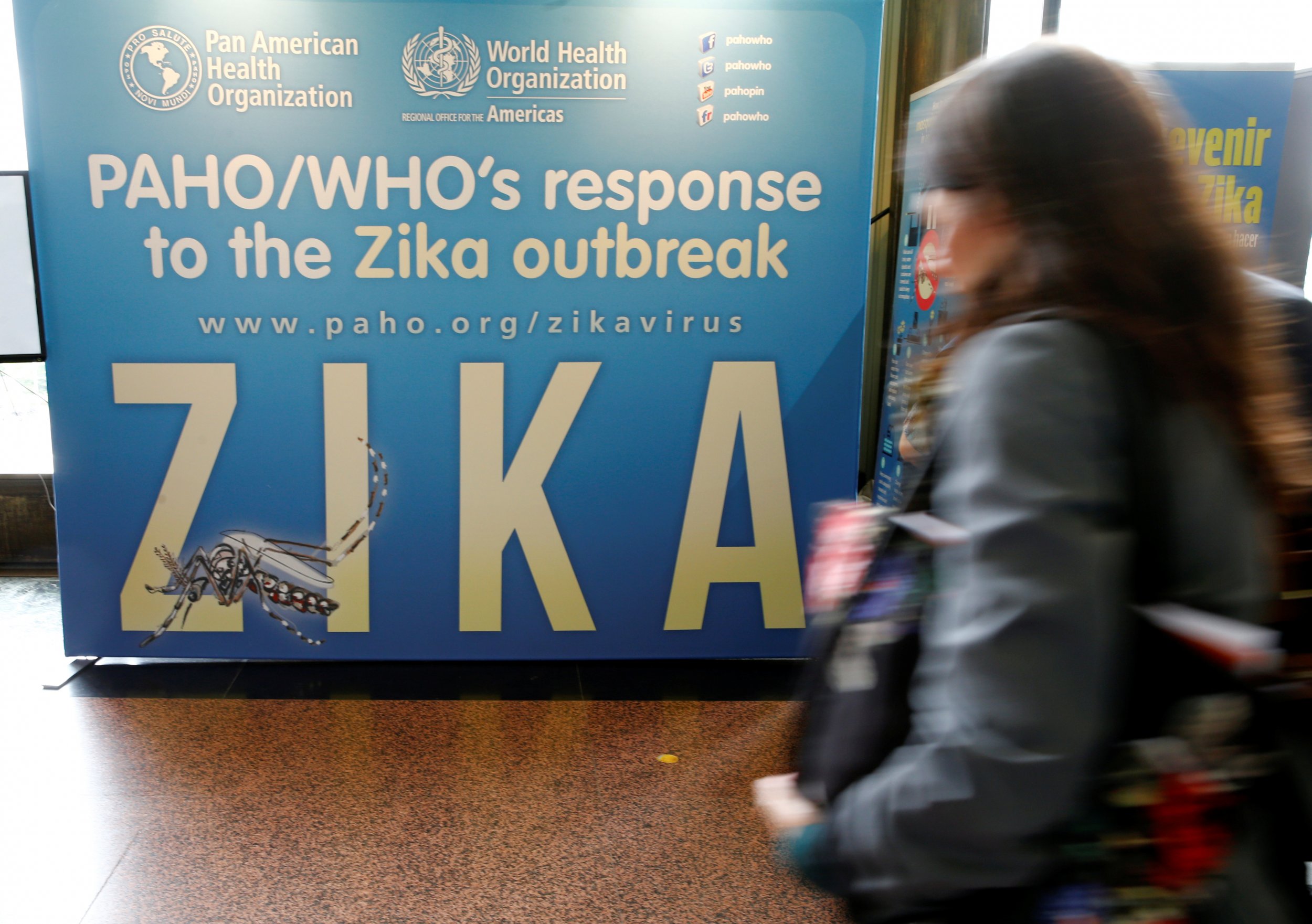
Updated | In an open letter to the director of the World Health Organization, 150 health professionals and academics called for a relocation or postponement of August's Olympic Games because of the Zika virus threat in Rio de Janeiro. The letter, published Friday, also accused the WHO of issuing guidance to the International Olympic Committee (IOC) under a conflict of interest.
The letter calls for the WHO to issue new guidance to the IOC. "It is...imperative that WHO conduct a fresh, evidence-based assessment of Zika and the Games, and its recommendations for travelers," the letter says. "It is indisputable that...holding the Games as scheduled has a greater risk of accelerating the spread of the Brazilian viral strain."
The letter says that "athletes, delegations and journalists are struggling with the decision of whether to participate" in the games. It also says that Zika not only puts those visiting or competing in the Olympics at risk but also means people at the games could return to their home countries and infect others. "Should that happen," the letter says, "the suffering can be great. It is unethical to run the risk."
"It's not the number of visitors that matters, it's the places they're going to," Amir Attaran, a professor of law and medicine at the University of Ottawa and one of the letter's four authors, tells Newsweek. "You're getting all sorts of travel to places that basically don't have travel links with Rio right now—Ethiopia, Kenya, Sri Lanka."
Responding to people who say Zika will spread regardless of whether the Olympics take place in Rio, Attaran says, "That is not a rationale for increasing and furthering the spread through the Olympics. By that rationale, you'd argue that if a forest fire is under way, what's the big deal with throwing some gasoline on it?"
Attaran calls the letter "a very unfunded, ad-hoc, unprofessional effort to get a few colleagues to speak their minds."
Lee Igel, a sports behaviorist with New York University who is another author of the letter, says the writers spent only this week drafting and circulating it among colleagues. "It's the sort of thing that picks up some steam pretty quickly because people are paying attention to it in the field," he says.
"We're operating under the assumption that right now it's all systems go for the Olympics, so we're looking to get some people around to doing an independent panel that's not going to hang anybody," Igel says, "but really just to sort through what can be done under the circumstances."
The signatories include physicians, lawyers, bioethicists, academics and public health officials, Igel says.
The letter notes that because of the virus, Major League Baseball earlier this month moved games scheduled to be played in Puerto Rico.
Asked to respond to the letter, a WHO spokesman pointed to the agency's statement from earlier this month that encourages athletes to protect themselves from mosquito bites, practice safer sex or abstain from sex and "avoid visiting impoverished and overcrowded areas in cities and towns with no piped water and poor sanitation." The statement advises pregnant women not to travel to areas affected by Zika.
"WHO/PAHO [Pan American Health Organization] will continue to monitor the Zika virus transmission and risks in Brazil and in other affected areas to provide updates on how Zika virus outbreaks, risks and prevention interventions develop between now and August and beyond," the WHO said.
The WHO spokesman also cited comments made Thursday by the director of the U.S. Centers for Disease Control and Prevention, Tom Frieden. During a National Press Club luncheon, Frieden said, "There is no public health reason to cancel or delay the Olympics." He added, "The risk is not particularly high other than for pregnant women."
However, Friday's letter accuses the WHO of issuing its guidance under a conflict of interest because of its partnership with the IOC. A WHO spokesperson was not available to respond to the charge.
Asked to comment on the open letter, a spokesperson for the IOC also pointed to the WHO statement from earlier this month. "The IOC is following their advice on this matter," the spokesperson says.
Thomas Bach, president of the IOC, said earlier this year that he felt "very confident" in the safety of athletes and spectators.
The IOC made an unrelated announcement on Friday, saying it had reanalyzed doping samples from the 2012 games in London and found that 23 athletes tested positive for banned substances.
Last week, the Olympics said it could ban as many as 31 athletes from competing in Rio because of reanalyzed samples from the 2008 games in Beijing.
This article has been updated to include additional comments from the International Olympic Committee.
Uncommon Knowledge
Newsweek is committed to challenging conventional wisdom and finding connections in the search for common ground.
Newsweek is committed to challenging conventional wisdom and finding connections in the search for common ground.
About the writer
Max Kutner is a senior writer at Newsweek, where he covers politics and general interest news. He specializes in stories ... Read more
To read how Newsweek uses AI as a newsroom tool, Click here.








